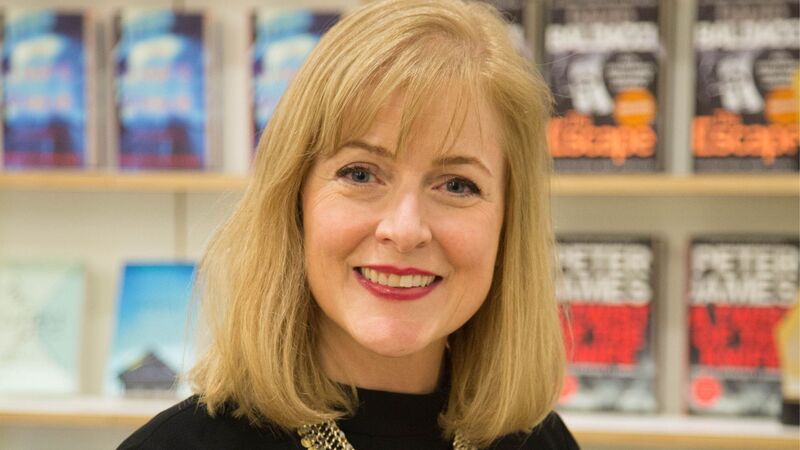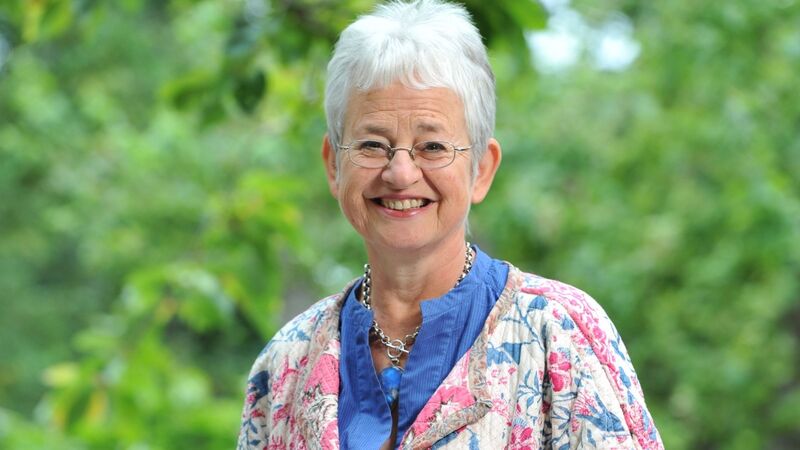You are viewing your 1 free article this month. Login to read more articles.
BA president Rossiter on leading through lockdowns as trade body’s roster grows
With membership of the Booksellers Association growing and indies rejuvenated by ‘shop local’ initiatives, its president Andy Rossiter shares how the trade body served its members through lockdowns.
It was no surprise when Andy Rossiter pictured below eventually took on the mantle of president of the Booksellers Association (BA). After all, he had been involved with the organisation since he co-founded independent mini-chain Rossiter Books with his wife Victoria in 2010, following more than 20 years at Waterstones and Ottakar’s. He says: “I felt like it was something I ought to do. I love the BA, and I’m keen to advocate bookselling.”
Though Rossiter’s appointment may have been a long time coming, what came afterwards was far from expected, as the country went into lockdown within a couple of weeks of him succeeding Nic Bottomley. “I never could have dreamed it would be so intense so soon,” he says. “I had the twin pressures of everything that was going on in my own shops, along with having loads of Zoom conversations with Meryl [Halls, BA m.d.], Nic Bottomley and the heads of publishing houses about what we needed as an industry in terms of support. That was gruelling emotionally and in terms of time.”
Rossiter co-owns three bookshops: two in Herefordshire in England and one in Monmouth in Wales. He and his wife Victoria were in the very late stages of signing up to open another store in Hereford last year, but pulled out just before the first lockdown—though they are now “looking for opportunities” to expand again. Rossiter Books furloughed all 12 of its staff members for the first three months of the lockdown and has since had to juggle navigating lockdown restrictions in both countries. Rossiter says: “It’s been a challenge, like it’s been for all business owners, I’m sure. We have been running hard just to make sure that we’re standing still. When we first locked down that was an awful feeling, locking our doors and not quite knowing whether we would ever unlock them again… It was all very, very uncertain.”
Bouncing back
Despite the low points, when the shops reopened after the first lockdown there was “an enormous pent-up demand” from customers who were keen to support independent businesses. The rural locations of the stores has also seen them benefit from the increase in tourism within the UK. Rossiter notes that there has been a general resurgence in reading during the lockdowns, too. “The outlook at the point that we first locked down appeared to be so gloomy for physical bookshops, and independents—because of their general lack of online trade—were probably the most vulnerable part of that. You just could not have dreamed of us being in this situation where book sales absolutely surged… It’s been incredible that that’s been one of the outcomes of this.”
You just could not have dreamed of us being in this situation where book sales absolutely surged… It’s been incredible that that’s been one of the outcomes of this
According to Rossiter, another positive to have come out of the past year has been the launch of online retailer Bookshop.org. He had kept a keen eye on the feedback from indie bookshops in the US during the first lockdown, after hearing about the company at the American Booksellers Association Conference in January 2020. He says: “A lot of them were saying what an incredible resource this was—it was the thing that was enabling them to survive. [Bookshop.org] was always going to launch in the UK, but the BA engaged with them very early on to try and see what their plan was, and to see if we could assist them to launch any quicker. I think probably our enthusiasm meant that it happened earlier.” He adds the timing of the retailer’s entry into the UK market, coinciding with England going back into lockdown, made it “an incredibly useful lifeline” for many indies.
The model business
Rossiter acknowledges that there is still some scepticism about Bookshop.org’s model, but explains: “We were very careful to listen to the feedback they got in the States before we encouraged them launching in the UK. I think they’ve been a real force for good, and I think most of the 500-odd independents who have joined would agree with that.” The BA president has diverted as much of his own bookshops’ online trade as possible through the website. He adds: “They had a very frantic period of just getting online and I know they had glitches. But they have done a terrific job in engaging with their community and trying to take on board all the feedback they were getting. I know they will continue to improve. And the sheer amount they have contributed to bookshops [£1.8m to date, according to the bookshop.org website] is an incredible extra boost.”
However, Rossiter is clear that the sector is not out of the woods yet, with supply chain issues escalating in the run-up to Christmas. Rossiter Books’ strategy has been to get in more copies of the books that it thinks will perform best in its stores, but Rossiter expects that some titles will go out of stock. Nonetheless, he is upbeat, saying: “As independents, we probably all specialise in offering the best customer service we possibly can and if some books go, we will back ourselves and our trade to be in a good position to advocate other interesting titles. We may lose one or two through reprints, but there is always a huge range out there. Gardners is in good shape as well, so I still think we are going to have a strong Christmas.”
Rossiter’s term has coincided with “a time of extraordinary change” for the BA, which last year bought Bertrams’ bookselling system Bertline and took on the production of the collapsed wholesaler’s Booktime magazine. Rossiter praises the BA team for the support and guidance it has given independents during such uncertain times. “I think they have done really good work as a trade body in collating all of the government advice and getting that out to their membership.” He points to the BA’s increased membership as evidence of this, saying: “There are now more than 1,000 BA members, which is equivalent to the membership maybe seven or eight years ago. It’s been an incredible resurgence. It undeniably has been a tough time, but I feel that most [indies] have come out of it quite well.”
New challenges
The BA is currently developing a tool that will enable independent booksellers to measure their carbon footprints. Rossiter says that making bookselling more sustainable is “very high on the BA’s list of priorities” and, as such, he and Halls have met with publishers over the past few weeks to talk about future plans. “With publishers, there is appetite for a conversation around exactly how our trade can improve in the way books get moved around. For bookshops, I think it’s the returns aspect of what we do that most concerns us. There have got to be better ways of bookshops buying books in the first place, so that perhaps the ordering and receiving of books is more accurate. I know there will be a meeting of interested parties—distributors, publishers, booksellers—and the BA will be playing a part in trying to work through solutions.”
Rossiter’s presidency will come to an end next April. Reflecting on his time in the post, he says: “It’s been odd how Covid has felt almost like a war-time environment where in this really difficult situation, a number of extraordinary things have happened.” While it has been “slightly dispiriting” to miss out on travelling to industry-wide events as president, ultimately Rossiter has “loved” his time representing the BA. Even when recalling the most “emotionally intense” times during the pandemic, he concludes: “It was great to be in the room, it was great to be a voice for the industry. I hope I positively represent independent bookselling and bookselling as a whole.”
















